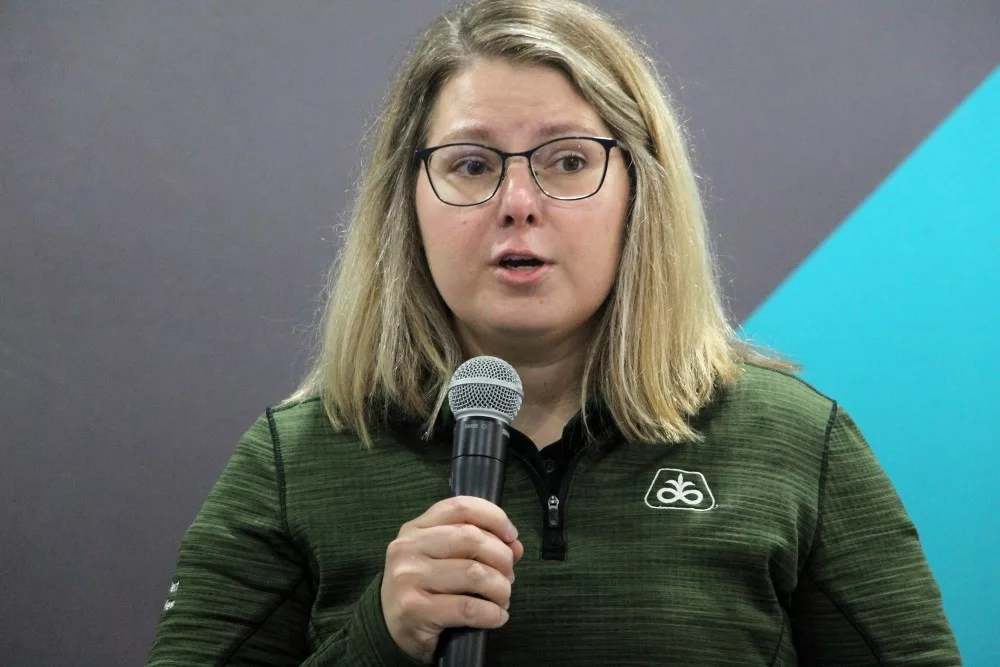Your browser doesn’t support HTML5 audio
October is SCN Action Month and that’s because now is the time to identify it in your field.
“Soybean cyst nematode is the number one pest in soybean production,” says Liz Knutson, Pioneer soybean marketing leader for the U.S. “It’s a billion-dollar pest for farmers across the U.S.”
While we talk each year about SCN, Knutson believes we don’t talk about it enough, given how prevalent it is here in Indiana.
“We actually saw a study out of Purdue University that mentioned that 89 of the 92 counties in the state of Indiana saw some level of soybean cyst nematode pressure. Of those 89 counties, about 45% of them, all of those fields had a level of soybean cyst nematode infestation in them.”
Knutson says with SCN, you don’t really know you have an issue until you have an issue. That’s why soil sampling here in the fall is your best bet to see if you have it in your field.
“That’s something a farmer can do independently, but at Pioneer, we’ve actually had some pretty significant soil sampling efforts targeted around trying to figure out what our level of infestation for SCN is. In 2021 and 2022, we conducted about 2,100 soil samples across the upper Midwest and found heavy to severe pressure in about 25% of those fields.”
How can Pioneer help? Knutson says they focus on three main areas for SCN: variety selection, seed treatments and cultural practices. With variety selection, you really have two native trait options: PI88788 or Peking sources of resistance.
“PI88788 is the kid on the block that everybody knows, Peking being a little newer to some folks. About 95% of all SCN resistant varieties have PI88788 in them. We offer the most Peking varieties of any company in the industry. So, we like to rotate those sources of resistance to preserve longevity of the trait. We’re also pursuing some innovative things coming later in the decade, through partnership with BASF, looking for new ways we can build up additional protection within that trait.”
Knutson encourages you to work with your local Pioneer field agronomist and seed sales representative to figure out if variety selection is enough or if you should consider a fungicide seed treatment like ILEVO® from BASF.
Click here to learn more about SCN Action Month.

